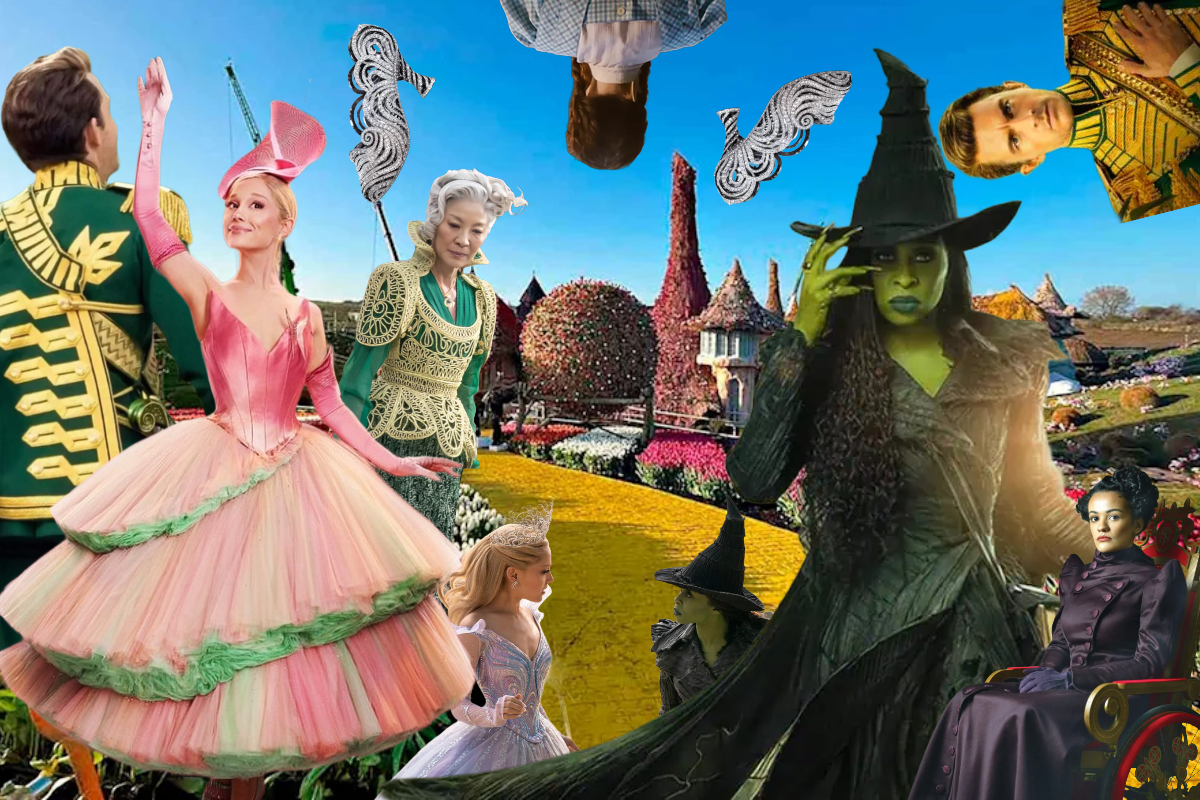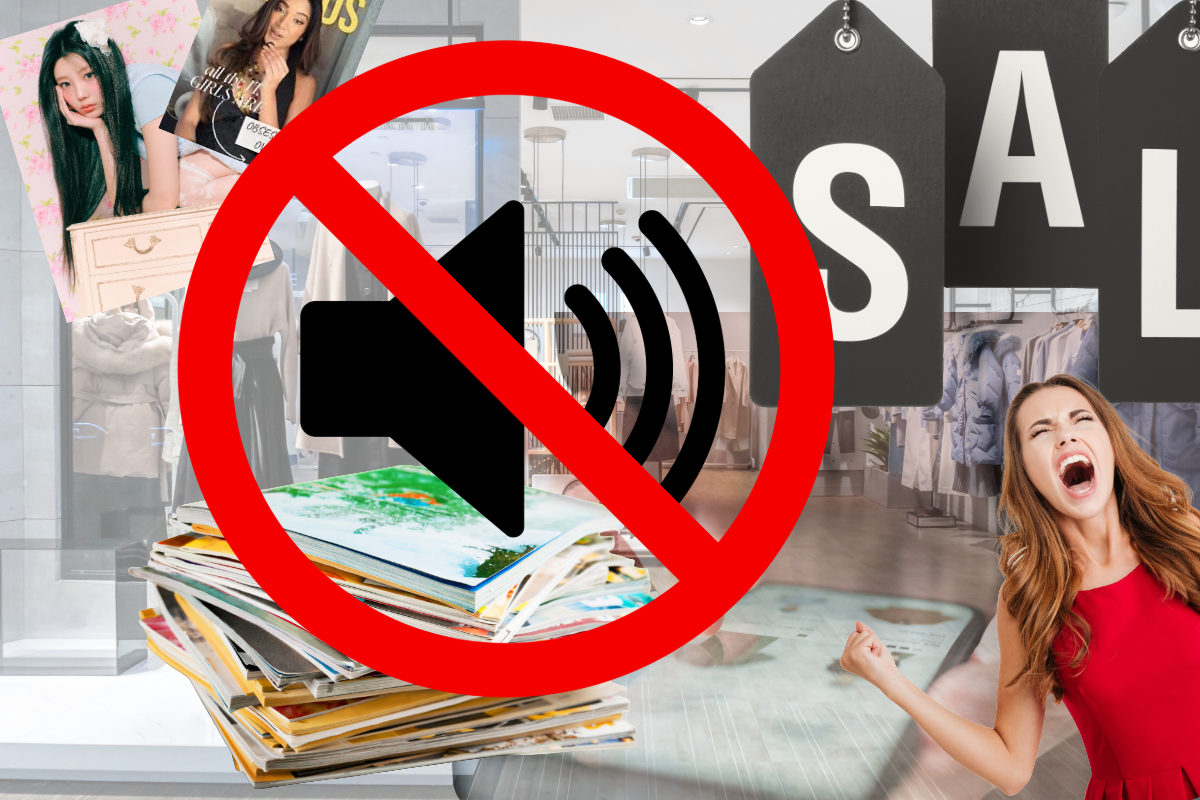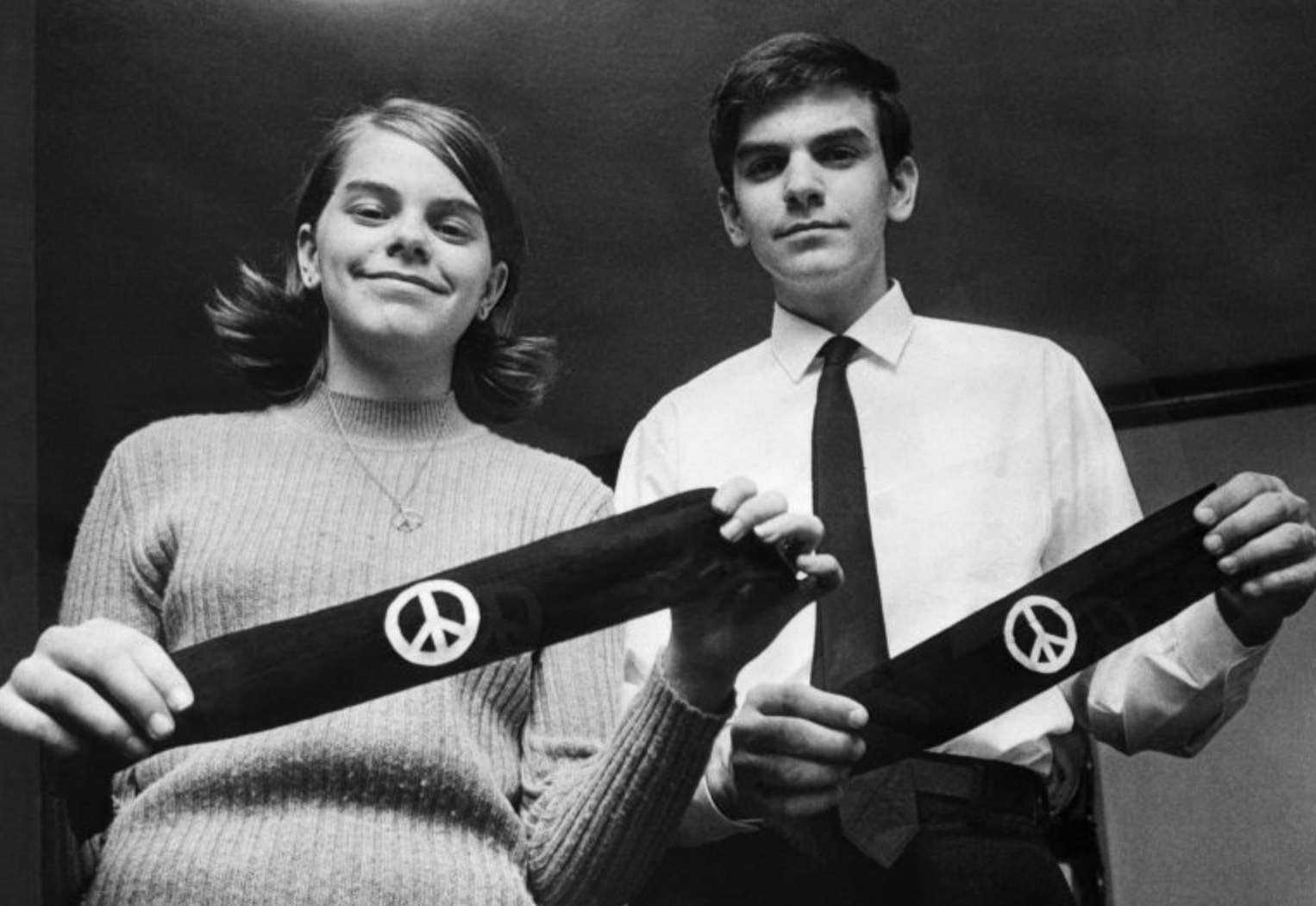The richness of the LGBTQ+ community encompasses many faces, diverse identities, and varied expressions.
Ricky Roman is an adult entertainer from Connecticut with 14 years of experience traveling across the country and working with people of different backgrounds. I spoke with him in Political Fashion to talk about queerness, fashion and gender expression.
Last time we spoke you told me you were feeling more aligned with the term queer. Is that something that you have embraced more and how is this journey going for you?
It's definitely something that I've taken and ran with since we last spoke. I definitely love the term queer and embrace that more. For all intents and purposes, if I have to check a box on a paper, gay will do, but I really love how encompassing queer is as a reclamation.

The beauty of the word is how open-ended it is for the personal experience of every person. How does that reflect on your personal experience?
It's important to me, like I said before, the reclamation of the word. Growing up, hearing it felt like it had a negative connotation, when in fact, that's wrong. It feels like it rings the most true for me. I think it means different things to different people, and what I like about it is I don't have to, like, I'm not going to sit here and tell you I'm bisexual or pansexual. I prefer to date cis men. But when it comes to how I have experimented and what piques my interest, it's not confined to a single binary.
I see that you are in LA, New York, Connecticut, and all over the country. Those are different places with different experiences for the queer community. How are the vibes different from each other? Of course, some places are way bigger than others, but how do you see the community reflected as you travel around different places?
I think what I love about what I do and getting to travel for it is there's a kind of safety in what to expect from the community, and that being really accepting and open-minded and ready to have a good time. That's kind of the name of the game for my workspace. I always joke to people that I'm working with, I tell them, if I'm having a bad day or if they're having a bad day, we try not to transfer that energy there because you're literally there being paid to kind of curate a vibe, and you can't be, no one wants a Debbie Downer. But to get back to your question, I think there's a little bit of flavor that is indicative of each area that I visit, but the general vibe is just gay as fuck. And I'm grateful for that, you know?
Talking more about the current climate that we're facing, have you seen a shift or a change in vibes in the cities that you're visiting? How are people reacting? I know that you said your role is kind of to go and cheer, but you can only do so much when the community feels unsafe and uneasy.
It's always a dumpster fire, right? But now especially, I think we're starting to see the effects of that, unfortunately, in, you know, in HD, so to speak. Living in a sanctuary city like New York, I feel like people have a lot of refuge here, and there are certain state protections that are honored. However, we know that our government is working tirelessly to dismantle and disregard state regulations, and that is scary in and of itself. I don't have the answers; I don't know except for just to keep existing, but that feels dangerous for certain marginalized groups within our community.
I think one of the most powerful forms of protest is existing unabashedly, and it's becoming scary again. For a long time, we felt like we were on the up and up, but this is where we're at right now.
There's an economic dimension to this expression that's rarely discussed. In an industry where appearance translates directly to livelihood, fashion becomes both a creative outlet and a financial investment. Each garment must withstand the physical demands of performance while capturing light, attention, and imagination. Yet beneath the spectacle lies something profoundly authentic—fashion as testimony. Every outfit narrates chapters of personal history: the teenage years of careful conformity, the exhilarating first experiments with self-determined appearance, the hard-won confidence to occupy space unapologetically.
I think that one of the most powerful visual and noticeable ways for the LGBTQ+ community to show who they are is through fashion. Not necessarily that there's a stereotypical way of showing who they are, but there are certain rules that we are breaking, not seeing clothes as something that is binary, but seeing clothes as something that represents us beyond gender. Tell me about your relationship with fashion.
My style has changed throughout the years. And of course fashion is cyclical and many of the clothes that I wore many years ago are back in style now. There’s a party here in Hell’s Kitchen called Hustlers where the vibe is sexy and that sort of energy is encouraged and celebrated and I have shown up to that gig in mini skirts. And I have seen some of those ‘masc for masc’ going ‘wtf’. But I think that when you see someone sitting in their skin very comfortably, I respect that, I think that’s very badass.
I’m not a gender bender per se and I am a huge fan of skirts and dresses. I think I’m going to start wearing more of them as a sign of protest.
But the runway extends far beyond the stage at the night club and onto the infinite scroll of social media. For queer adult entertainers, platforms like Instagram, TikTok, and X have become essential extensions of their businesses—virtual stages where fashion expression continues to resonate and reach communities far beyond club walls.

You started kind of like when social media started being a new thing and everything.
Yeah, absolutely. Like, Instagram and Twitter were just really taking off. I feel really grateful to have come up in adult entertainment in the time that I did because social media was this awesome new way to interact. And social media wasn't brand new. I mean, I come from MySpace, and before that, there was Friendster, blah, blah, blah, you know, as a millennial. But it's this living thing, and it's changed so much since its inception. I really think, in the beginning, it was the best. Maybe it's my rose-colored glasses, but you weren't policed so hard. That's a big problem I have with Facebook, Instagram, any of them, because I look at people like myself, you know, as a queer adult entertainer, but then also as a mixed-race person of color, how certain people are policed and others are not, what certain people can get away with and others can't.
This is so stupid but I guess there’s a point to the end. A few years ago I peaked on Instagram at 133,000 followers. I’m now down to 115 and I have between 50 to 100 people follow me every day and I find it hard to believe I mean, maybe I’m really that old and have fallen off that I have more than 100 people unfollowing me throughout the week but I don’t doubt a factor in this is after being flagged so many times I know my posts are not being shown to not just unlike people before you pages but even to my friends. It’s just these little little things so that you can’t grow your account and it’s not just for the followers. This is my livelihood.
Sometimes within the LGBTQ+ community, we kind of fight against each other, shaming each other for the clothes we wear and the way we think because we don't agree a hundred percent on what we wear, how we wear it or how we think. At the same time, there is hateful rhetoric outside against the entire community that we could be fighting together. What do you make of this?
We exist through this digital space and express ourselves that way, for better or worse. It's disheartening when you have people, like you said, we're all on this side. We shouldn't be each other's enemies; we have a common issue we need to be united against.
I think it's part of my withdrawal from maybe doing stuff with other creators, let alone studios, because I've seen this shift in the past few years. There are a lot of like— these worded-out queens, who are real kitty cats, and I just don't have time. But with that said, I'm grateful to have met some really wonderful, outspoken, intelligent people that do what I do and work in this space. They are using their platform for good, for visibility, to speak out, and so I find myself gravitating to those people more. I just—I really hate how this sounds, but I can't be bothered with this bro negativity, so I'm really removed from it at this point.
How are you receiving these new generations, these Gen Zs, 21, and 22-year-olds who are starting their careers in this industry? Are you welcoming them, collaborating with them? How is that working?
I celebrate them. You know, I see them in the club a lot, right? It's a younger environment, generally speaking, but it should be a safe space for all ages. I love freedom. I love the sense of freedom that they feel in their expression. My only thing is I hope that our oral history is being passed around because it's not being taught in schools. It's not something you can really find; it's oral, you know what I mean? And I just want it to be respected and for younger queer youth to know where certain liberties came from so we can fight for it together. The root of it's important, right? Knowing its history and respecting that.
My last question is, what is your favorite song from Mayhem?
Right now my heaviest repeat is Shadow of a Man, it’s so dancy I love this heavy MJ nod, Vanish into You and the Beast.








